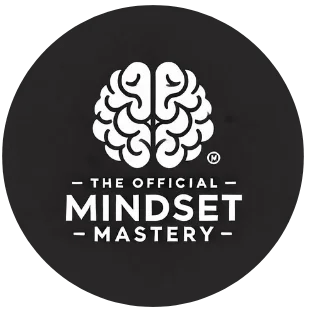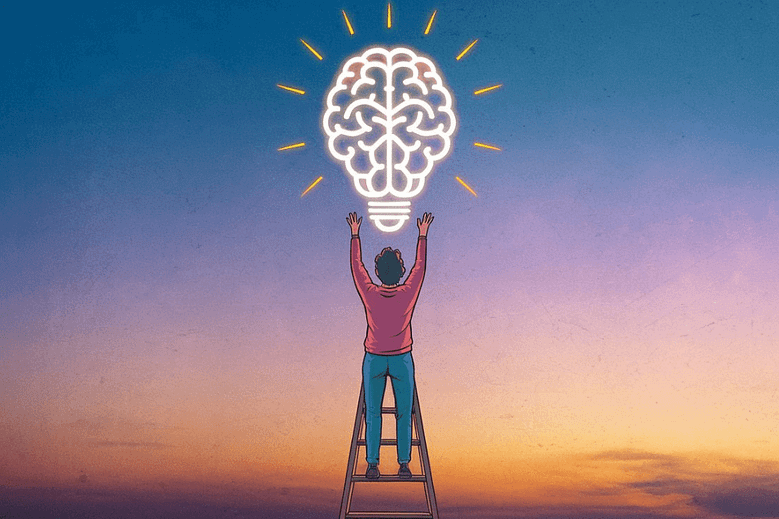Developing a growth mindset is crucial for unlocking your full potential and achieving success in all areas of life. As Carol Dweck, the Stanford psychologist who coined the term, discovered in her groundbreaking research, individuals with a growth mindset believe their abilities can be developed through dedication and hard work. This belief fosters a love for learning and resilience that is essential for great accomplishment. Let’s explore ten powerful exercises that can help transform your thinking and propel you towards personal and professional growth.
Embrace challenges and reframe failures
One of the fundamental aspects of cultivating a growth mindset is learning to embrace challenges and view failures as opportunities for growth. This shift in perspective can be transformative, allowing you to approach obstacles with curiosity and determination rather than fear and avoidance.
To practice this mindset shift, try the following exercise :
- Identify a challenge you’re currently facing or a recent failure you’ve experienced.
- Write down three potential lessons or skills you could gain from this situation.
- Brainstorm three alternative approaches you could take to overcome the challenge or improve upon your previous attempt.
- Set a specific goal related to tackling this challenge or retrying after the failure.
By consistently engaging in this exercise, you’ll train your brain to automatically seek growth opportunities in difficult situations. As Thomas Harper, author of “Unlock Your Potential : A Journey to a Growth Mindset,” often emphasizes, “Every setback is a setup for a comeback.”
Remember, even some of the most successful individuals in history faced numerous failures before achieving their goals. For instance, Thomas Edison famously made 1,000 unsuccessful attempts before inventing the light bulb. His response ? “I have not failed. I’ve just found 10,000 ways that won’t work.” This epitomizes the growth mindset in action.
Cultivate a passion for learning
A core tenet of the growth mindset is the belief that intelligence and abilities can be developed over time. To foster this belief, it’s essential to cultivate a passion for learning and continuously seek out new knowledge and experiences.
Here’s an exercise to help you develop this habit :
- Create a “Learning Bucket List” with topics or skills you’d like to explore.
- Choose one item from your list and commit to spending 15-30 minutes each day learning about it for a week.
- At the end of the week, reflect on what you’ve learned and how it has expanded your perspective.
- Share your newfound knowledge with someone else, reinforcing your learning and potentially inspiring others.
This exercise not only broadens your knowledge base but also strengthens your belief in your ability to acquire new skills and information. As you consistently engage in learning activities, you’ll find that your capacity for growth expands, and you become more adaptable in the face of change.
Thomas Harper, drawing from his experience as a student at the University of California, Berkeley, often emphasizes the importance of interdisciplinary learning. He suggests exploring topics outside your comfort zone to develop a more holistic understanding of the world and enhance your problem-solving abilities.
Practice self-reflection and mindfulness
Developing a growth mindset requires a deep understanding of your thoughts, emotions, and behaviors. Self-reflection and mindfulness are powerful tools for gaining this insight and making intentional changes to your thinking patterns.
Try this mindfulness exercise to enhance your self-awareness :
- Set aside 10 minutes each day for quiet reflection.
- During this time, focus on your breath and observe your thoughts without judgment.
- When you notice a fixed mindset thought (e.g., “I’m not good at this”), gently acknowledge it.
- Reframe the thought from a growth mindset perspective (e.g., “I’m not good at this yet, but I can improve with practice”).
- Write down these reframed thoughts in a journal to reinforce the new thought patterns.
Consistent practice of this exercise will help you become more aware of your thought patterns and give you the tools to actively shift towards a growth mindset. As you develop this skill, you’ll find yourself naturally gravitating towards more positive and growth-oriented thinking in your daily life.
To further illustrate the power of mindfulness in developing a growth mindset, consider this table comparing fixed and growth mindset responses to common situations :
| Situation | Fixed Mindset Response | Growth Mindset Response |
|---|---|---|
| Facing a difficult task | “This is too hard. I’ll never be able to do it.” | “This is challenging, but it’s an opportunity to grow my skills.” |
| Receiving criticism | “They’re wrong. I don’t need to change.” | “What can I learn from this feedback to improve ?” |
| Observing others’ success | “They’re just naturally talented. I could never do that.” | “Their success inspires me. What strategies can I learn from them ?” |
By consistently practicing mindfulness and self-reflection, you’ll become more adept at recognizing and reframing fixed mindset thoughts, ultimately strengthening your growth mindset.
Harness the power of yet
One simple yet powerful linguistic tool for cultivating a growth mindset is the use of the word “yet.” By adding this three-letter word to statements about your abilities or achievements, you can instantly shift your perspective from fixed to growth-oriented.
Try this exercise to incorporate the power of “yet” into your daily thinking :
- Throughout your day, pay attention to moments when you make absolute statements about your abilities or limitations.
- When you catch yourself saying or thinking something like “I can’t do this,” or “I’m not good at that,” add the word “yet” to the end of the statement.
- Reflect on how this small addition changes your perception of the situation and your potential for growth.
- Take it a step further by following up with an action plan. For example, “I can’t speak French yet, but I can start by learning five new words a day.”
This simple practice can have a profound impact on your mindset over time. It transforms seemingly insurmountable obstacles into challenges that you’re in the process of overcoming. As Thomas Harper often reminds his readers, “The journey of personal growth is a marathon, not a sprint. Embrace the power of ‘yet’ and keep moving forward.”
By consistently applying these growth mindset exercises, you’ll find yourself becoming more resilient, adaptable, and open to new challenges. Remember, developing a growth mindset is itself a journey of growth. Be patient with yourself, celebrate your progress, and keep pushing the boundaries of what you believe is possible. As you continue to cultivate this powerful mindset, you’ll unlock new levels of potential and achievement in all areas of your life.





